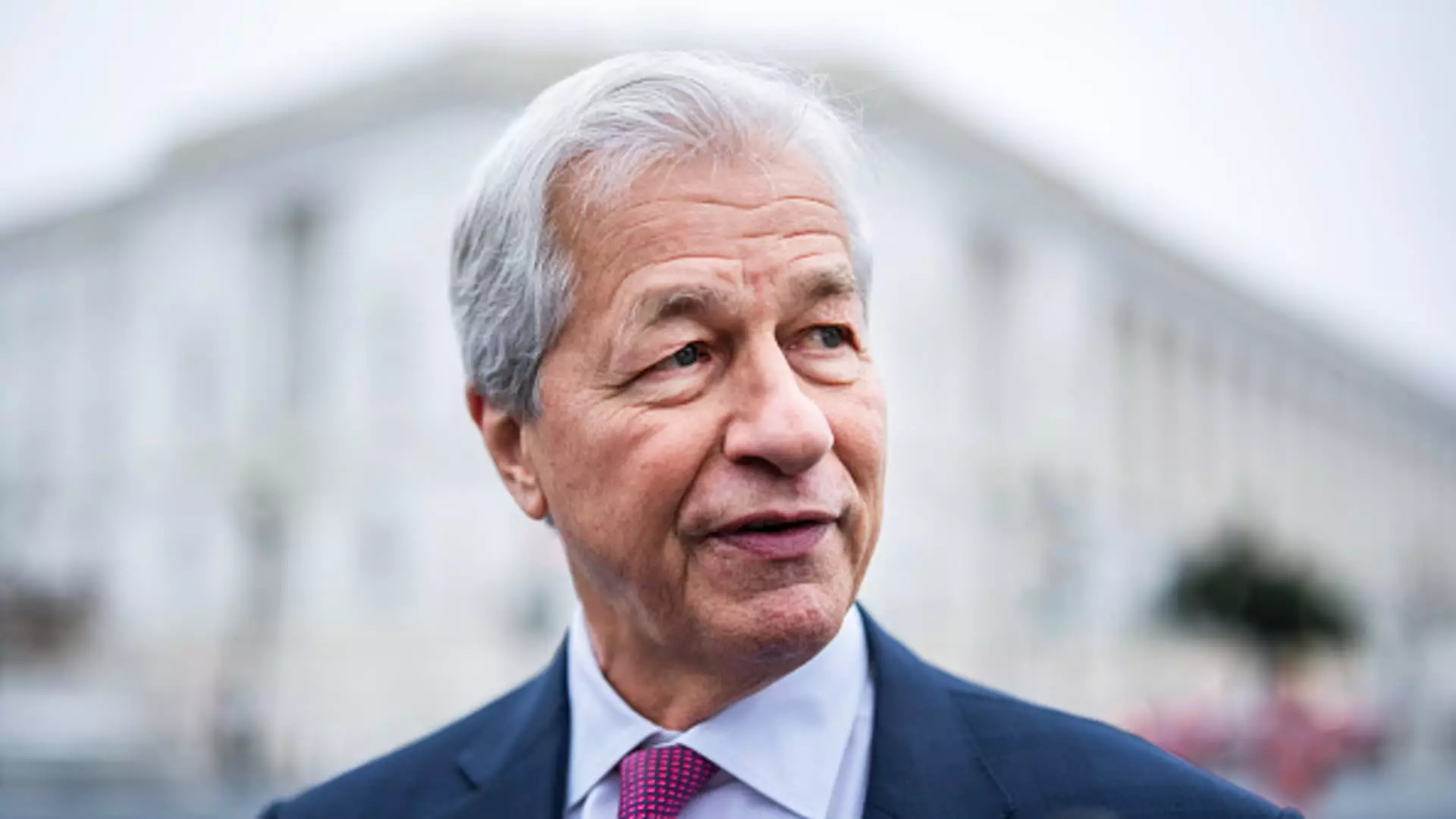In a recent interview with CNBC, Jamie Dimon, the CEO of JPMorgan Chase, expressed a critical view on the operational efficiency of the U.S. government. Dimon’s remarks come against the backdrop of significant administrative changes implemented during the Trump administration, which included the elimination of federal jobs and the dismantling of several government agencies, notably the Consumer Financial Protection Bureau. His observations reflect a broader dialogue regarding the efficacy of governmental institutions, which many believe are plagued by inefficiencies and inadequate performance.
When asked about the initiative led by Elon Musk to create a Department of Government Efficiency, Dimon refrained from giving a strict “yes” or “no” response. However, his commentary revealed a consensus with the underlying purpose of such efforts. By stating that, “the government is inefficient, not very competent, and needs a lot of work,” Dimon underscores a growing sentiment among business and economic leaders who advocate for renewed scrutiny of governmental functions. It is evident that Dimon believes that reforms are not only necessary but critical to ensuring that taxpayer dollars translate into effective outcomes.
Dimon’s voice in this important conversation is particularly noteworthy, as he ties the necessity for governmental reform to the core issues of financial prudence and accountability. He poses rhetorical questions which challenge the status quo: “Why are we spending money on these things? Are we getting what we deserve?” This approach emphasizes a proactive stance toward evaluating governmental spending, insisting that a closer examination of public expenditures is paramount. Dimon argues that the conversation should extend beyond merely addressing the national deficit; it should focus on constructing appropriate policies and efficient bureaucratic frameworks that align with the needs of the American populace.
Moreover, Dimon’s assertions raise critical questions about the very nature of governance in a contemporary economy. The CEO recognizes the importance of legal boundaries in effecting change, indicating that excessive budget-cutting or illegal activities by the suggested efficiency body could lead to judicial intervention. This attention to legal frameworks serves as a reminder that any organizational reform must balance ambition with accountability.
In the interview, Dimon further ventured into related topics such as workplace culture and geopolitical tensions, illustrating his multifaceted perspectives on not just corporate leadership but national wellbeing. His emphasis on a return to in-office work and commentary on international issues like the Ukraine conflict and tariffs speaks volumes about his holistic understanding of how these elements interact with economic and governance frameworks.
In essence, Jamie Dimon’s critique of government operations resonates deeply in today’s socioeconomic climate, raising vital discussions around efficiency, accountability, and the comprehensive role of governance in shaping a prosperous future. His observations invite stakeholders, from policymakers to voters, to engage critically with the structures that dictate public service and fiscal responsibility.

